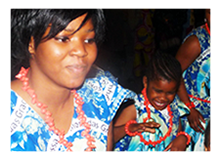Domestic Violence Services
The fabric of Ghanaian society is based on a culture of family institution and therefore it is Freshaid's aim to promote and maintain effective advocacy service which will strengthen communities in the context of family unity during incidence of domestic violence. The introduction of Domestic Violence Act 2007, herald a new approach towards the historical traditional acceptance of violence towards women and children; in public opinion, professional practice and official practices as normal.
In the traditional Ghanaian culture any intervention leading to the perpetrator, who is always the man and as such the head/bread winner of the house brought to justice or punished could lead to disintegration/breakdown of families hence the acceptance of domestic violence as a way of enforcing order by the head of a family unit. Domestic Violence can be physical, emotional, or sexual.
WHAT IS DOMESTIC VIOLENCE (DV)
DV is the term commonly used to refer to violence against women by a partner (husband or cohabitant, ex-husband or ex-partner) in the context of intimate relationships within the family. The nature of the violence ranges from slapping and shoving to domestic homicide. The most common form of physical attack is punching and kicking usually resulting in injuries such as bruising and cuts and sometimes broken bones and teeth. Evidence suggests that acts of physical violence are usually accompanied by threats as well as other acts of aggression, coercion and intimidation, and violent events may also include acts of sexual violence. Domestic violence is about gaining control not a lack of control. If an abuser is careful about when, where and to whom they are abusive, then they are showing sufficient awareness and knowledge about their actions to indicate they are not ‘out of control’
WHAT IS THE CAUSE OF DOMESTIC VIOLENCE
Domestic violence is caused by the misuse of power and control within a context of male privilege. Male privilege operates on an individual and societal level to maintain a situation of male dominance, where men have power over women and children. Perpetrators of domestic violence choose to behave abusively to get what they want and gain control. Their behaviour often originates from a sense of entitlement which is often supported by sexist and other discriminatory attitudes. In this way, domestic violence by men against women can be seen as a consequence of the inequalities between men and women, rooted in patriarchal traditions that encourage men to believe they are entitled to power and control over their partners.
Not all domestic violence occurs within a context of traditional power relations. Ultimately, responsibility for the violence must lie with the perpetrator of that violence, despite any societal influences that we may draw on in order to understand the context of the behaviour. Domestic violence is learned intentional behaviour rather than the consequence of stress, individual pathology, substance use or a ‘dysfunctional’ relationship. Perpetrators of domestic violence frequently avoid taking responsibility for their behaviour, by blaming their violence on someone or something else, denying it took place at all or minimising their behaviour. Whilst responsibility for the actual violence is the perpetrator’s alone, there are belief systems in our society that perpetuate abusive attitudes and make it difficult for women and children to get help.
These include:
- Blaming the victim for the violence
- Putting the ‘family’ before the safety of women and children
- Tolerating the use of violence
- Privileging men over women and children’s needs
- Treating domestic violence as a private matter
Contact Steven NOW on 0274119235 .



We do appreciate your support and thank you very much for visiting our website.










